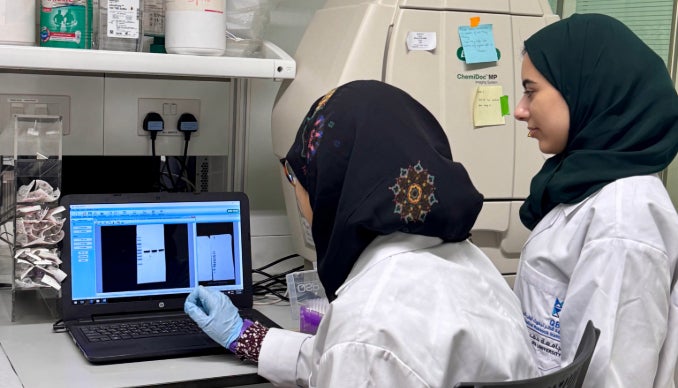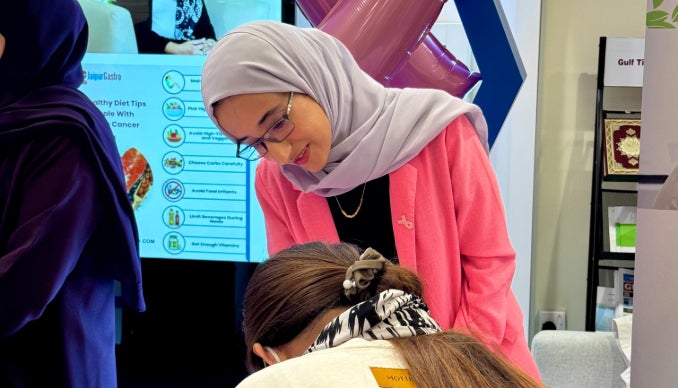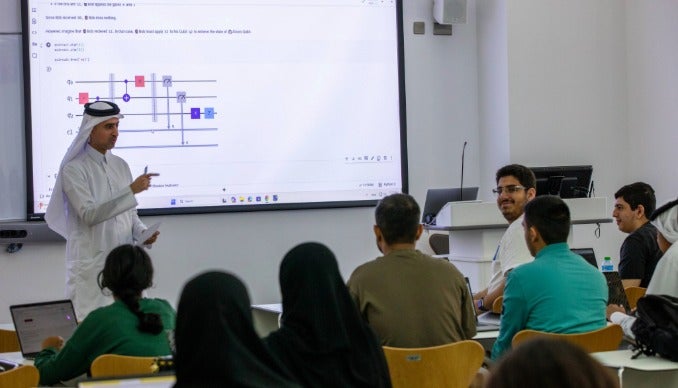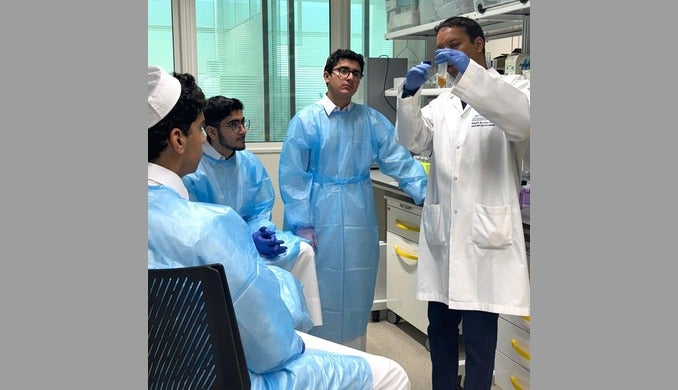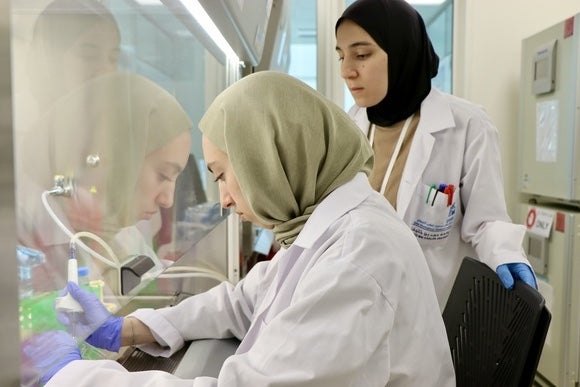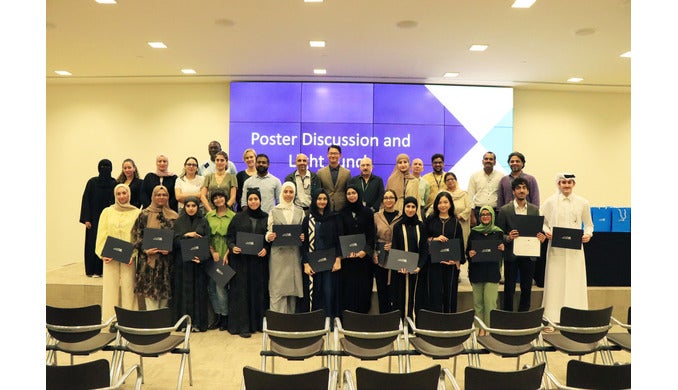Research utilizes data from Global Cancer Observatory to compare incidence and mortality patterns with rest of the world

Hamad Bin Khalifa University’s (HBKU) Qatar Biomedical Research Institute (QBRI) has conducted the first study of its kind to compare cancer trends across all Arab speaking countries with the rest of the world.
Led by Dr. Mariam Al Muftah, Scientist, and Dr. Fares Al-Ejeh, Senior Scientist, both members of QBRI’s Translational Cancer and Immunity Centre, the study utilizes data from the Global Cancer Observatory to shed light on incidence and mortality patterns of different cancer types in Arab-speaking nations. Its findings not only provide crucial insights into the epidemiology of cancer in the Arab world but also underscore the need for targeted interventions and further research. The study also offers an essential reference to evaluate and monitor the progress of national cancer initiatives for surveillance and prevention in Arab countries.
QBRI’s research underscores that there are considerable variations in incidence of cancer and mortality across the world. While overall rates were lower in Arab nations for most cancer types, Hodgkin and non-Hodgkin lymphomas, bladder, breast, and liver cancers showed higher incidence rates in Arab countries. The same countries also have a higher mortality-to-incidence ratio in both sexes for all cancer types. Incidence rates of cervical, endometrial, breast, testicular and prostate cancers were shown to be higher in specific age groups in certain Arab countries compared to the global average.
The study also revealed sub-regional variations of incidence rates within Arab countries, with breast cancer and non-Hodgkin Lymphoma particularly prevalent in the Levant. Half of the Arabian Gulf countries also had higher incidence rates of non-Hodgkin Lymphoma than the global average, while Hodgkin lymphoma showed higher incidence rates in most Arab countries. Smoking remains a major cause of cancer across the region, with higher incidences of lung and laryngeal cancer observed in young males (> 50 years of age) in some Arab countries compared to the rest of the world.
Commenting on the study, Dr. Fares Al-Ejeh, said: “Cancer continues to pose a significant global health challenge that’s only expected to increase in the coming years. And while the population of Arab countries is now greater than the United States or European Union, little attention has been given to cancer trends and incidence rates within the Arab population. This comprehensive study provides information about cancer incidence and mortality in Arab countries while continuing to emphasize the importance of ongoing studies.”
“This study's findings have crucial implications for cancer prevention, treatment, and research in Arab countries,” added Dr. Mariam Al Muftah . “By understanding the region’s unique cancer landscape targeted interventions can be developed, including early vaccination programs, and detection initiatives. Awareness campaigns can also be tailored to specific demographics to significantly lower cancer rates and improve the overall health of populations.”
Qatar Biomedical Research Institute (QBRI) is a leading research institute under Hamad Bin Khalifa University (HBKU). The institute addresses the Qatar National Health priorities outlined in the Qatar National Research Strategy through its dedicated research centers – the Cancer Research Center (CRC), Diabetes Research Center (DRC) and Neurological Disorders Research Center (NDRC). For more information, please visit https://www.hbku.edu.qa/en/qbri




